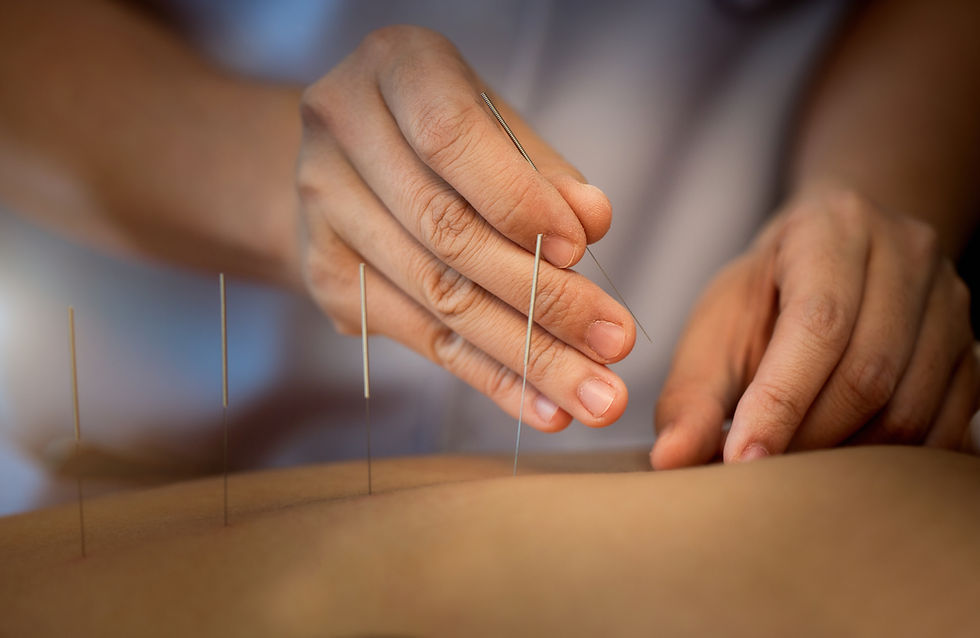
Current Students
Welcome to Students!
The student council has one charter with representation at each campus. Each campus is unique in its own way, and so each campus also has its own set of student representatives. Student council represents the students to the administration to voice concerns and needs for support. They also host events to support students and foster community on campus. The student council also has a special space on mighty networks!
Student Council
Student Support
At AIMC, we offer support services with the aim of ensuring students have what they need to be successful, such as accommodations for students with disabilities, tutoring, financial aid, alumni mentorship, advising, and community resources.
In addition to providing ongoing support throughout the progtam, the Student Services department works closely with student groups to enhance campus life.

Student Resources
Accessing Financial Aid for School
When getting started with financial aid, first, you'll file your FAFSA online with the government. Then, most things are available through Populi from there. Explore more information below.
Student FAQ
-
Special CircumstancesIf a student has special circumstances or a change in circumstances not already reflected on the FAFSA (such as loss of employment, retirement, or loss of untaxed income) he or she can ask the college to review the changed circumstances by submitting the college’s Policy Appeal Form defining the situation and providing actual figures. In addition, a student may request to have his or her Cost of Attendance adjusted due to special or unusual circumstances. Examples include medical or dental or nursing home expenses not covered by insurance, unusually high child care costs, etc. The appropriate documentation of the unusual circumstances and/or expense must be attached to the college’s Policy Appeals Form and submitted to the financial aid office for review and final submission to the Appeals Committee. The student will be notified in writing of the committee’s decision.
-
Exit CounselingFinancial Aid students are required to complete the Exit Counseling when graduating for each term that enrollment drops below 6 units. Complete Exit Counseling here.
-
How to Apply for Financial AidSubmit FAFSA & AIMC Financial Aid Application forms as soon as possible and by one week prior to the start of the trimester for timely processing. Loan processing will be initiated one week after the start of term, once attendance has been confirmed. Assuming all documents are in place, funds will be disbursed from the Department of Education 6-8 weeks after the start of the term. If you would like to receive financial aid, please follow the checklist below: Start by downloading the Financial Aid Checklist & use it to track the steps outlined below. Complete the Free Application for Federal Student Aid (FAFSA) at https://studentaid.gov. Our school federal code is 03327400. Complete Entrance Counseling, a Master Promissory Note (MPN), and the Annual Student Loan Acknowledgment for Graduate/ Professional Students at studentaid.gov. Complete the AIMC Application for Financial Aid. Fill out the AIMC Loan Request Form. Please contact our Director of Financial Aid at FAofficer@aimc.edu with any questions.
-
Types of LoansThe Federal Direct Loan Program, available at a fixed rate, constitutes the primary source of funding for financial aid at AIMC Berkeley. Detailed financial aid information on the various federal financial programs, as well as free information on preparing for and funding education beyond high school, is available from the US Department of Education (USDE) at www.studentaid.ed.gov. Graduate students may be eligible for two different financial aid programs (1) Direct Unsubsidized Loans and/or (2) Graduate PLUS loans. (1) Direct Unsubsidized Loans Direct Unsubsidized Loans are available to graduate or professional degree students. You are not required to show financial need to receive a Direct Unsubsidized Loan. Students who are admitted to AIMC Berkeley as graduate students, i.e., possess a bachelor’s degree or the equivalent of three years of undergraduate study (90 semester units), are eligible to borrow graduate-level Direct Unsubsidized (“Stafford”) Loans. For each academic year, a student may borrow a combined total of $20,500 from unsubsidized loan programs. As of July 1, 2018 the Federal Unsubsidize Loan interest will increase from 6% to 6.595% and the Grad-Plus will increase from 7% to 7.595% This has been approved by the congress office. Origination fee is still pending. Any students requesting for federal loans as of July 1, 2018 will be subject to the new rate. (2) Graduate PLUS loans (“Gradplus”) Students needing additional assistance may consider the federal Graduate PLUS loan. This loan is based on your personal financial credit history. This loan has a 4% origination fee and a higher interest rate of 7.9%. Please contact the financial aid office for further details on the eligibility requirements for this program. Reimbursement to Veterans and Eligible Persons. For information or for resolution of specific payment queries, veterans should contact the Department of Veteran’s Affairs nationwide toll-free number at 1-888-442-4551. To maintain your financial aid status once your application is approved, you need to maintain satisfactory academic progress.
-
Academic Year & Disbursement TimingACADEMIC YEAR An academic year for financial aid purposes is two trimesters. Annual loan and grant awards are paid in two trimesters. For example, a student who begins AIMC Berkeley in the Fall trimester receives eligibility for annual loan and grant maximums for the first and second trimesters, (first academic year). Eligibility is renewed for the third and fourth trimesters, (second academic year.) Students may potentially borrow for five two-trimester academic years while completing the program (on the 10-trimester schedule), or longer, depending on available aid. DISBURSEMENT TIMING Your Federal Direct Loans will be disbursed in the Terms/Year you indicated in the AIMC Loan Request Form. Your loans may be disbursed around the 4th week after the Add/Drop period, provided attendance has been confirmed. Please budget accordingly. To calculate the amount of funds you will have available for books and living expenses, first determine your tuition charge based on your unit load. Please contact our Financial Aid office with any questions. We can be reached at FAofficer@aimc.edu or 951-232-6299.
-
Limits & Additional BorrowingThe current limit of the Unsubsidized Loan is $20,500 for two trimesters at AIMC. If you wish to pursue additional borrowing with the federal credit based Graduate PLUS Loan, please complete the online application & required documentation at https://studentaid.gov/plus-app/grad/landing prior to requesting Grad PLUS Loans at AIMC. For details including eligibility, please visit https://studentaid.gov/understand-aid/types/loans/plus/grad.
-
Can I specialize while I am in the program, or do I have to wait until I pursue a doctorate degree?The program builds a strong foundation for becoming a general practitioner of East Asian Medicine. However, students have the opportunity to gain specialized experience through internships in areas such as orthopedics, prenatal care, and more. These specialized clinical opportunities allow students to develop focused expertise before pursuing a doctoral degree.
-
I don’t have a medical or science background. Is that a problem?Not at all! A biomedicine or science background is not required to begin the East Asian & Integrative Medicine graduate program at AIMC Berkeley. Our curriculum provides a strong foundation in Biochemistry, Biophysics, Biology, Anatomy & Physiology, and Pathophysiology to support students in developing a well-rounded integrative medicine practice. For applicants with a Master’s-level education in related fields, there may be opportunities to transfer eligible credits into the program.
-
What aspects of East Asian Medicine will I learn? What treatment techniques will be covered?Students at AIMC Berkeley gain a comprehensive education in East Asian Medicine, including Acupuncture, Bodywork (Shiatsu & Tuina), Traditional Chinese herbology, Japanese Meridian Therapy, Traditional Chinese Medicine nutrition, and Qi Gong. Students also learn a variety of treatment techniques such as traditional, shallow, and contact needling, seven-star needling, cupping therapy, direct and indirect moxibustion, shonishin (pediatric acupuncture), auricular acupuncture, and electro-acupuncture (e-stim), providing them with a well-rounded foundation in integrative and traditional approaches.
-
What kind of academic and work background is best suited for this program?We welcome students from diverse academic and professional backgrounds, including nurses, MDs, massage therapists, lawyers, economists, teachers, and therapists. AIMC values a broad range of experiences, as they contribute to a rich and collaborative learning environment.
-
Can I work while attending AIMC?Yes, many students work while attending AIMC. For full-time students, we recommend limiting work commitments to about 20 hours per week, especially in the first year, to maintain a healthy work-study balance. Part-time students may be able to maintain a full-time work schedule, depending on their course load. If you live within a 30-to-45-minute commute, we recommend keeping your combined school and work commitments under 50 hours per week. For those with a longer commute, taking a lighter course load may be beneficial.
-
How much time will I need to spend in the classroom? How much homework can I expect?Classes are held Monday through Friday, primarily during the day. Full-time students typically spend three to four days per week in classes and clinic. For each hour in the classroom, students can expect to spend about two hours on homework. Special projects and research papers may require additional time. (1 credit equals 50 minutes of class time per 15-week term.) Students also have homework assignments for their clinical shifts, which begin in the second term with Theater Observation. In the clinic, students should anticipate one to 1.5 hours of homework per shift.
-
Which of my classes will transfer?Not all programs have the same requirements. Part of this is due to states varying in requirements for licensure, but part is due to freedom among schools to make programs their own. Some schools may have a robust requirement for mind body curriculum, such as taiji and qigong. Other schools may require more in biomedicine, such as schools who are accredited for the California Acupuncture Board (CAB). Every student is unique, and we will do our best to make sure that your transfer process is conducive to the best possible educational experience and set you up for success for your board exams and life after acupuncture school.
-
What are some other important transfer credit policies?Students may only transfer up to 50% of the credits for the program to which they are applying. (In the case of school closure, there may be a waiver in place to allow more.) For students who took a course with less contact hours than the required course for AIMC, they will be eligible for a contest exam if the hours completed are at least 50% of the requirement for the individual course. Decisions can only be finalized based on formal transcripts.
-
What happens when you have less hours in a particular subject area than what is required by AIMC?If you have at least 50% of the total hours required for that area, you will be eligible for a contest exam. If you have less than 50%, you will be required to take courses to make up the difference. What happens if you have more credits than you need in a particular subject area? Sometimes courses serve two different purposes, and they may be able to count somewhere else. However, once a program requirement is met, it is met. There is no way to count credits toward a different area of study with different learning outcomes.




_svg.png)
